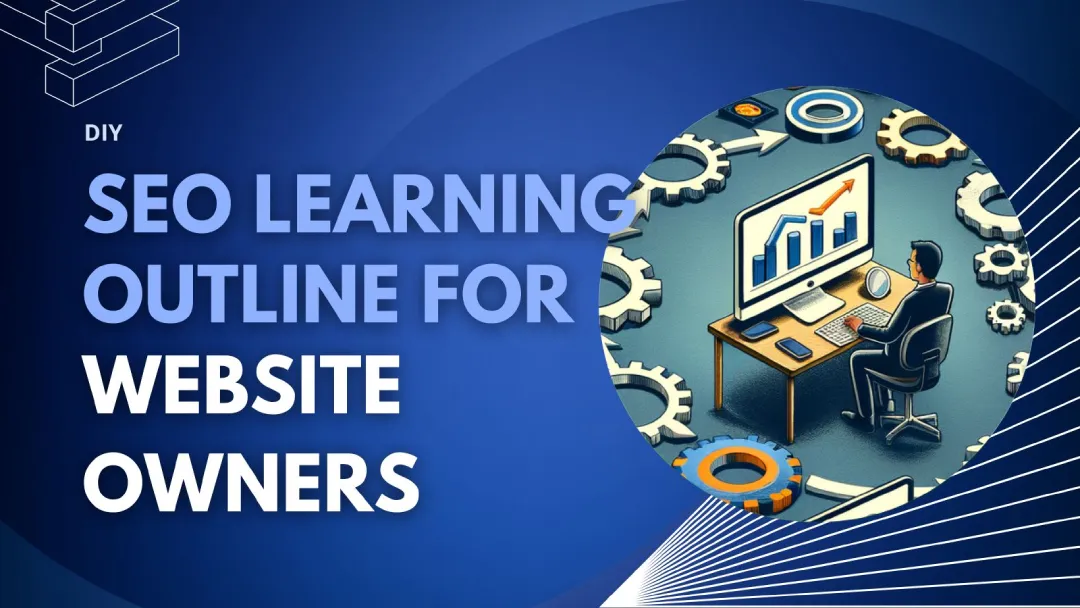SEO Learning Outline: 10+ Tips to Supercharge Your Neglected Websites

Occasionally, when a website owner isn’t ready to commit a budget to have us improve their website SEO, they will ask us for DIY resources to attempt to do SEO learning on their own.
We’re happy to provide these resources.
We like it when our clients are as informed as we are on SEO because it helps the communication process about what we’re doing for them go much more smoothly.
When we speak the same language, there is less confusion about the value we provide in time and energy they’d rather spend on their customers and stakeholders.
Below is a syllabus of sorts. It is a roadmap for learning all the major topics a beginner to intermediate SEO professional should know. Use it as a list of concepts with which you can further search Google for videos, courseware, and blog posts that explain more and in your preferred learning style.
If you have a favorite topic or resource, please add it to the comments and we’ll incorporate it!
Introduction to SEO
The most important thing to remember about SEO is that it needs to be all about your audience! They are the ones who benefit from your SEO learning efforts. And when they benefit, you and your website will be rewarded by their visits.
What is SEO and why is it important?
- SEO stands for Search Engine Optimization
- It helps your website rank higher in Search Engine Results Pages (SERPs)
- Higher rankings lead to more organic traffic and potential customers
How search engines work
- Crawling, indexing, and ranking websites
- Importance of relevance and authority
Key SEO Terminology
- Keywords, backlinks, meta tags, alt text, etc.
- See Moz’s SEO glossary
Foundational SEO Learning Concepts
- Keyword research
- Understanding your target audience and their search intent
- Using keyword research tools like Google Keyword Planner or Ahrefs Keyword Explorer
- Identifying long-tail keywords and their importance
- Guide to keyword research
- On-page optimization
- Optimizing title tags, meta descriptions, and header tags (H1, H2, etc.)
- Using keywords naturally in your content
- Improving website structure and navigation
- On-page SEO Beginner’s Guide
- Free SEO tools
- Content creation
- Creating high-quality, engaging, and informative content
- Focusing on user experience and solving their problems
- Incorporating keywords naturally into your content
- Content creation guide
- Technical SEO
- Ensuring your website is mobile-friendly and responsive
- Improving website speed and performance
- Setting up proper URL structures and using canonical tags
- Beginner’s guide to technical SEO
- Link building
- Understanding the importance of high-quality backlinks
- Strategies for earning backlinks (guest posting, broken link building, etc.)
- Avoiding spammy or low-quality links
- Link building guide
Practical Exercises and Daily SEO Learning Tasks
- Conduct keyword research for your website
- Identify 5-10 main keywords related to your website’s niche
- Find 3-5 long-tail keywords for each main keyword
- Incorporate these keywords into your content plan
- Optimize your website’s on-page elements
- Review and update title tags, meta descriptions, and header tags for your top 5 pages
- Ensure each page has a unique, keyword-rich title tag and meta description
- Use header tags (H1, H2, etc.) to structure your content
- Create new content regularly
- Develop a content calendar with topics related to your keywords
- Write a new blog post or article at least once a week
- Optimize each piece of content for your target keywords
- Monitor your website’s technical SEO
- Use Google’s Mobile-Friendly Test to check your website’s mobile responsiveness
- Test your website’s speed using Google PageSpeed Insights
- Fix any technical issues identified by these tools
- Build high-quality backlinks
- Identify 3-5 websites in your niche that accept guest posts
- Write a guest post for one of these websites each month
- Engage in broken link building by finding broken links on relevant websites and suggesting your content as a replacement